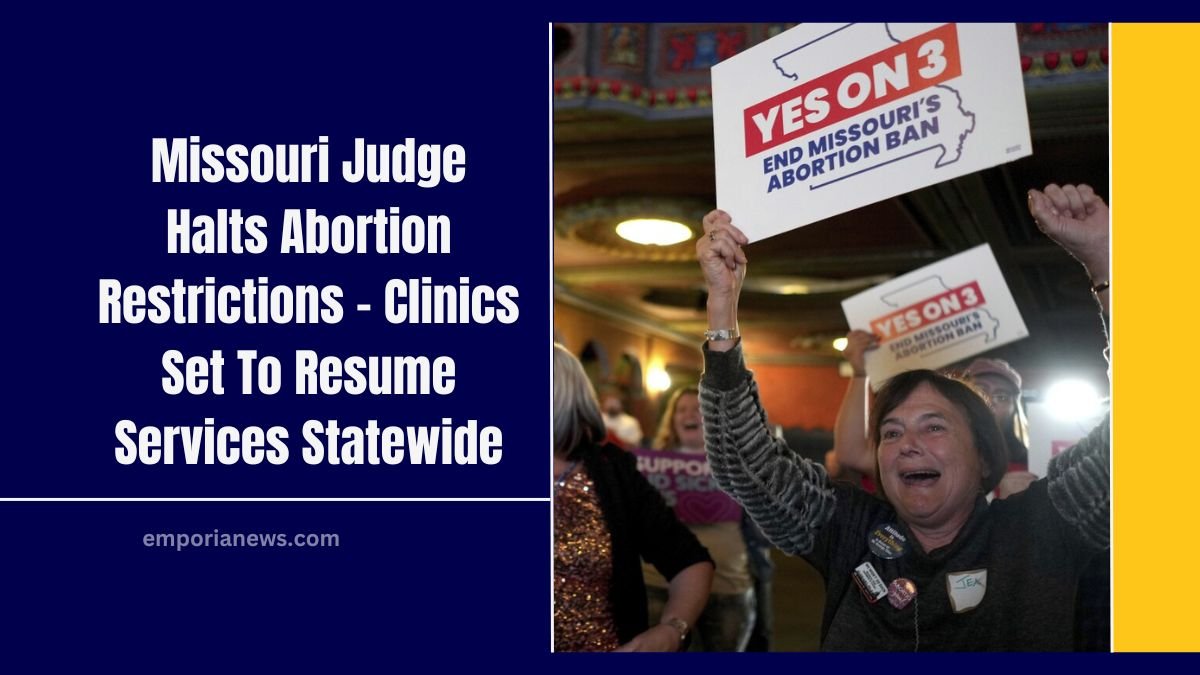In a landmark decision, Jackson County Circuit Judge Jerri Zhang has blocked Missouri’s restrictive licensing requirements for abortion providers, effectively reinstating abortion services across the state.
This ruling comes after Missouri voters approved Amendment 3 in November 2024, enshrining the right to abortion in the state constitution. Despite this, providers had been unable to offer services due to stringent regulations.
Background
Following the U.S. Supreme Court’s 2022 decision to overturn Roe v. Wade, Missouri implemented a near-total abortion ban, severely limiting access to reproductive healthcare.
In response, advocates pushed for constitutional protections, leading to the passage of Amendment 3 in 2024. However, existing licensing requirements continued to hinder providers from resuming services.
The Court’s Ruling
Judge Zhang’s recent order declared that the state’s licensing requirements were discriminatory, as they uniquely targeted abortion providers.
The judge stated, “The facility licensing requirement is facially discriminatory because it does not treat services provided in abortion facilities the same as other types of similarly situated healthcare, including miscarriage care.” This decision effectively removes the barriers that had prevented clinics from operating, allowing them to resume services immediately.
Impact on Providers
Planned Parenthood, the primary abortion provider in Missouri, announced plans to resume services at their Kansas City and St. Louis clinics. Margot Riphagen,
President and CEO of Planned Parenthood Great Rivers, expressed relief, stating, “Today’s decision affirms what we’ve long known—the state’s abortion facility licensing requirements were not about patient safety but rather another politically motivated barrier to prevent patients seeking abortion from getting the care they need.” The organization is preparing to welcome patients in the coming days.
Community Response
Abortion rights advocates have lauded the ruling as a significant victory for reproductive freedom in Missouri. Mallory Schwarz, Executive Director of Abortion Action Missouri, emphasized the broader implications: “With this change, the landscape for Missourians and the entire Midwest region will be transformed, as patients will have greater access to abortion care than they have had in years.” The organization is mobilizing clinic escorts to support patients at the St. Louis clinic.
Conversely, anti-abortion groups have expressed disappointment and plan to continue their advocacy. Brian Westbrook, Executive Director of Coalition Life, remarked,
“This ruling reinforces the need for pro-life agencies and advocates to offer life-affirming alternatives to women.” The group intends to maintain its presence outside clinics to provide resources and support to those seeking alternatives to abortion.
Legal Outlook
The Missouri Attorney General’s office is expected to appeal Judge Zhang’s decision, potentially leading to further legal proceedings.
In the interim, the preliminary injunction allows abortion services to resume while the broader legal challenges continue.
This development underscores the ongoing legal complexities surrounding abortion rights in Missouri, even after constitutional amendments have been enacted.
| Date | Event |
|---|---|
| June 2022 | Missouri enacts a near-total abortion ban following the overturning of Roe v. Wade. |
| November 2024 | Voters approve Amendment 3, adding abortion rights to the state constitution. |
| December 2024 | Amendment 3 takes effect, but existing regulations continue to restrict services. |
| February 2025 | Judge Zhang blocks discriminatory licensing requirements, allowing services to resume. |
This timeline highlights the significant milestones in the evolving legal status of abortion in Missouri, reflecting the dynamic interplay between legislative actions, voter initiatives, and judicial decisions.
Judge Zhang’s ruling marks a pivotal moment in Missouri’s reproductive healthcare landscape, restoring access to abortion services and aligning state practices with the constitutional protections affirmed by voters.
As legal challenges persist, the commitment of providers and advocates to ensure safe and accessible abortion care remains steadfast.




